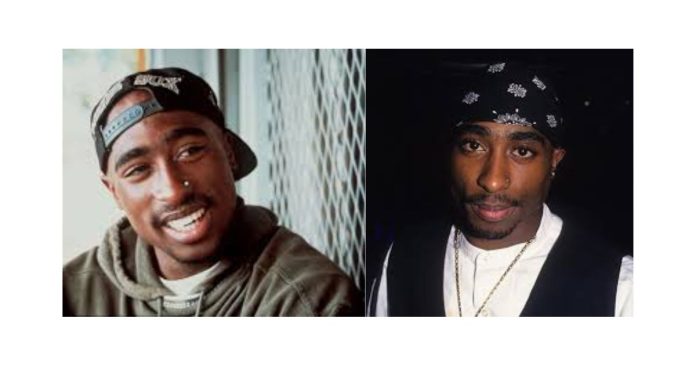Tupac Shakur, often simply known as 2Pac, remains one of the most influential and iconic figures in the history of hip-hop and music. His life, filled with both triumphs and struggles, has left a lasting legacy that continues to inspire generations. Known for his powerful lyrics, activism, and controversial life, Tupac’s story is one of talent, conflict, and unfulfilled potential. Here’s everything you need to know about Tupac Shakur, including his biography, family, and some interesting trivia about the legend.
Bio and Early Life
Tupac Amaru Shakur was born on June 16, 1971, in East Harlem, New York City, to Afeni Shakur and Billy Garland. Tupac’s birth name, Tupac Amaru, was taken from an Incan revolutionary leader, symbolizing his family’s commitment to social justice. His mother, Afeni, was an active member of the Black Panther Party, which deeply influenced Tupac’s views on social and political issues. Despite his father’s absence in his life, Tupac was raised with a strong sense of activism and the importance of standing up for justice.
The family moved frequently during Tupac’s childhood, including to Baltimore, where Tupac attended the Baltimore School for the Arts. It was here that Tupac developed his passion for performing arts, studying acting, poetry, jazz, and ballet. His talent for both poetry and music started to shine, laying the foundation for his career as a rapper and activist.
Career and Rise to Fame
Tupac’s career took off in the early 1990s when he joined the hip-hop group Digital Underground as a backup dancer and rapper. His breakthrough came in 1991 when he was featured on the group’s hit single, “Same Song.” He soon began his solo career, releasing his debut album, 2Pacalypse now, in 1991. The album’s controversial lyrics addressing social issues like police brutality, racism, and poverty gained Tupac both critical acclaim and public attention.
His second album, Strictly 4 My N.I.G.G.A.Z., was released in 1993 and further established his presence in the rap world. However, it was his 1996 album, All Eyez on Me that solidified Tupac’s place as a global icon. The album included hit singles such as “California Love,” and “How Do U Want It,” and is considered one of the greatest hip-hop albums of all time.
Tupac was known for his raw and unapologetic lyrics, which spoke to the struggles of inner-city life, race relations, and personal experiences. His ability to blend socially conscious messages with street narratives made him both beloved and controversial, earning him a dedicated fan base and frequent scrutiny from the media and the public.
Personal Life and Family
Tupac’s family background played a significant role in shaping his life. His mother, Afeni Shakur, was a major influence on his life and activism. She was an outspoken advocate for civil rights and raised Tupac to be aware of the systemic inequalities facing African Americans. Despite her efforts, Tupac’s life was marred by personal challenges, including legal battles, feuds within the rap community, and incidents that led to his incarceration.
Tupac was close to his stepfather, Mutulu Shakur, a former Black Panther and a fugitive involved in the 1981 Brinks robbery. However, his relationship with his biological father was strained, as Billy Garland was largely absent from Tupac’s life.
Tupac was also romantically linked to several women during his lifetime, including actress Jada Pinkett (who was one of his close friends) and rapper Kidada Jones, whom he was engaged to at the time of his death.
Trivia about Tupac Shakur
Poet and Actor: Before becoming a rapper, Tupac was deeply involved in poetry and acting. He even appeared in several films, such as Juice (1992) and Poetic Justice (1993), demonstrating his versatility as an artist.
Political Activist: Tupac was vocal about political and social issues, especially those affecting African Americans. His music often addressed police brutality, inequality, and racial tensions, making him a symbol of resistance in many communities.
The “Tupac Mystique”: Tupac’s life and death have been shrouded in mystery, with numerous conspiracy theories surrounding his shooting in 1996. Some fans believe he faked his own death and went into hiding, fueling ongoing speculation about his legacy.
Posthumous Influence: Despite his tragic death, Tupac’s music, poetry, and activism continue to influence artists, activists, and fans worldwide. Albums and unreleased songs are still being released, maintaining his relevance in the music world.
The 7-Day Theory: After Tupac was shot multiple times in Las Vegas in September 1996, he died from his injuries on September 13, 1996. The 7-day period leading to his death has become the subject of speculation, especially due to his cryptic references to death in his music and interviews, leading some to believe in a “7-day prophecy.”
Legacy and Death
Tupac Shakur was tragically shot on September 7, 1996, in Las Vegas, following a confrontation after the Mike Tyson boxing match. He died six days later on September 13, 1996, at the age of 25. His death remains unsolved, adding to the mystique surrounding his life. Despite his short life, Tupac’s impact on music, culture, and social activism remains immeasurable.
Tupac’s legacy lives on through his music, poetry, and activism. His influence continues to shape the landscape of hip-hop, and his voice remains a powerful force for social change.
Tupac Shakur is more than just a rapper; he was an artist, poet, and activist whose life and work transcended music. His tragic death cut short a promising career, but his legacy as one of the greatest artists in hip-hop history endures. Through his music, Tupac gave voice to the struggles of marginalized communities, and his impact continues to resonate today. Whether remembered for his poetic lyrics, his activism, or the mystique surrounding his death, Tupac remains an unforgettable figure in both music and culture.



